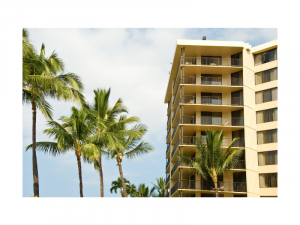Rental income in the UK is earned by landlords that receive income from tenants of their rental properties or land.
This income is taxable and the rate of tax paid is determined by the other income earned in the tax year by the landlord.
How rental income is taxed in the UK
The rent received from tenants occupying the rental property is taxable,
The revenue however allows the landlord to deduct the allowable expenses that relate to renting the property out to the tenant.
The net rental income would then be taxable income.

Expenses that could be claimed when calculating rental income.
This would vary depending on the landlord’s expenses.
Below are common expenses that could be claimed to reduce the tax to be paid by the taxpayer:
- General maintenance and repairs to the
- Water rates, council tax, gas and electricity
- Insurance, such as landlords’ policies for buildings, contents and public liability
- Costs of services, including the wages of gardeners and cleaners
- Letting agent fees and management fees
- Legal fees for lets of a year or less, or for renewing a lease for less than 50 years
- Accountant’s fees
- Rents (if you’re sub-letting), ground rents and service charges
- Direct costs such as phone calls, stationery and advertising for new tenants
- Vehicle running costs (only the proportion used for your rental business)
Expenses that you could not claim from rental income
Mortgage payments: Only the Interest element of the mortgage payment can be deducted as an expense.
HMRC has introduced a new change to the amount of mortgage interest that could be deducted from rental income.
From the tax year 2017/18, HMRC is planning to gradually remove the relief for mortgage interest. For example:
2017/18 -only deduct 75% of mortgage interest could be deducted.
2018/19 -reduced to 50%.
2019/20- reduced to 25%.
By 2020, Landlords would not be able to claim relief for mortgage interest.
2. Capital expenditure
Capital expenditures are usually expenses that would be used in the business for a longer period.
For example adding something to the property, altering or upgrading part of the house and also purchasing furnishing and equipment for the property.

3. Some certain parts of costs of maintenance and repairs.
The cost of maintenance and repairs to a property is usually allowable expenses deductible when computing the rental profit.
However, maintenance and repairs that are of a capital nature are not allowable deductions.
Repair and maintenance would have capital nature if doesn’t restore an asset to its original condition, sometimes by replacing parts of it.
The exception to this is replacing a part of the property with the nearest Morden equivalent such as replacing a single glazed with a double glazed window.
The expenses would be added to the cost of the house and relief would be received from capital gains when the property is finally sold.

4 Clothing – Expenses that have dual benefits are usually not allowable expenses by HMRC.
Clothing is an example of such expense. Cost of buying for example a suit to wear to a meeting relating to your property rental business, you can’t claim for the cost as wearing the suit is partly for your rental business and partly to keep you warm – no identifiable part is for your property rental business
5. Private telephone calls – Telephone expenses has to relate only to the property rental business.
6. Personal expenses – you can’t claim for any expense that was not incurred solely for your property rental business
How taxes are computed from rental income
To the determine the tax due to the HMRC, there are things that need to be considered
- Personal circumstances of
- Your profit is the amount left once you’ve added together with your rental income and taken away the expenses or allowances that you can claim.
What happens if you receive rental profit without declaring it to HMRC?
Surprisingly a lot of landlords are not aware of the compliance issues that relate to receiving rental income.
So therefore they have not declared this to HMRC after several years of receiving rental income.
HMRC, therefore, has opened a window which would give taxpayers not paying tax on their rental profit to make a declaration.
This is referred to as the let property campaign.
This campaign is just for a short period and HMRC hopes this would give landlords in the UK who owe tax by letting residential properties in the UK or abroad get their tax up to date in a simple way.
The exception to the let property campaign.
The let property campaign is only open to residential properties.
It’s not open to the Landlord letting out non-residential properties like shops, garages, and lockups.
It’s not available to declare rental income from a Limited company or a trust.
Advantages of declaring rental income through The Let property campaign
When a taxpayer makes full and voluntary disclosure of all unpaid liabilities,
Within this window open by HMRC they can expect a lower penalty than HMRC
If the HMRC, finds out about this rental income themselves, they would otherwise raise an enquiry or compliance check without the disclosure.
Steps in Benefiting from The let property campaign.
Taxpayers would notify HMRC about their intention of taking part in the let property campaign.
They would inform them about all income, gains, taxes and duties you’ve not previously told them about by submitting a disclosure.
HMRC would give the taxpayer 90days after informing them of the disclosure to make a disclosure
They would write a make a formal offer to explain their circumstance
Payment on tax outstanding would be made or a payment plan arranged with HMRC
Conclusion on rental income
We hope you have enjoyed reading this blogpost,if you would need more advice or support,kindly contact us

